Chinese Shared bicycle
Shared bicycle refers to the bicycle sharing service provided by enterprises in campus, subway station, bus station, residential area, commercial area, public service area, etc. It is a time-sharing rental mode. Sharing bicycles is a new environmental protection shared economy.
Shared bicycle is essentially a new type of vehicle leasing business - bicycle leasing business, which mainly relies on the carrier (bicycle) bicycle. It can make full use of the sluggish bicycle travel situation caused by the rapid economic development of the city, and maximize the utilization of public road traffic.
Shared bicycle has attracted more and more attention. Because it conforms to the concept of low-carbon travel, the government is also in a period of good-faith observation of this new thing.
On May 7, 2017, the founding meeting of the Shared Bicycle Professional Committee was held in Shanghai, announcing the establishment of the Shared Bicycle Professional Committee of China Bicycle Association. On August 3, 2017, the Ministry of Transport and other 10 departments jointly issued Guidelines on Encouraging and Regulating the Development of Internet Bicycle Rental. The new policy clarifies the standardization of parking places and the promotion of electronic fences, and proposes that sharing bicycle platforms should enhance online and offline service capabilities. On November 6, 2017, China Communications Industry Association issued the group standard "Overall Technical Requirements for Shared Bicycle Application System Based on Internet of Things". In December 2017, sharing bicycles was selected for the hot words list of 2017. in December 2017, ofo took the lead in cancelling the free monthly card. The monthly price has also been adjusted to 20 yuan / month.
On May 21, 2018, Beijing Municipal Government and Transportation Card and ofo Xiaohuang Car jointly announced strategic cooperation, and released NFC intelligent locks to support Beijing Municipal Card. in July 5th, the announcement of the motorcycle announced that the zero threshold will be implemented throughout the country.
Bida, a third-party data research institute, released a report on China's shared bicycle market in 2016, which shows that by the end of 2016, the total number of users in China's shared bicycle market has reached 18.86 million. It is expected that in 2017, the number of users in the shared bicycle market will continue to grow substantially, reaching 50 million by the end of the year.
The report points out that China has experienced three stages of development in sharing bicycle market. From 2007 to 2010, as the first stage, the public bicycle model, which was developed from abroad, began to be introduced into China. The government led the management of sub-cities, mostly with piled bicycles. From 2010 to 2014, as the second stage, enterprises specializing in bicycle market began to emerge, but public bicycles are still dominated by piled bicycles. The third stage is from 2014 to 2018. With the rapid development of mobile internet, the Internet shared bicycle led by Mobay emerged as the times require, and more convenient pileless bicycle began to replace the piled bicycle.
The report also shows that shared bicycles are more popular among young men. The proportion of men who share bicycles in China accounts for 54.2%, while women account for 45.8%. In the age distribution of users, people aged 25 to 35 years use the most, followed by people under 25 years old. In frequency of use, the number of users who use 3 times to 4 times a week is the most.
In 2014, four partners of Peking University graduates, Dai Wei, Xue Ding, Zhang Siding and Yu Xin, co-founded ofo to solve the problem of university campus travel. in May 2015, more than 2000 shared bicycles were in Beijing University campus. Ofo has also stepped out of Peking University and successfully promoted in seven other capital universities, serving nearly 900,000 teachers and students.
As of November 2016, a number of shared bicycles were born and a large number of venture capital have been obtained.
On December 8, 2016, ofo held a city strategy conference in Guangzhou, announcing its official landing in Guangzhou. It will establish strategic cooperation with the Haizhu District Government to connect 60,000 bicycles in 2016.
On March 20, 2018, after CCTV 315 evening party roll-call sharing bicycle deposit is difficult to retreat, the "sharing bicycle deposit exemption" has again become the focus of heated discussion, among which users have the highest voice for Mobai deposit exemption. According to statistics, there are more than ten brands sharing bicycles on the market to achieve a credit free deposit.
On May 21, 2018, Beijing Municipal Government and Transportation Card and ofo Xiaohuang Car jointly announced strategic cooperation, and issued NFC intelligent locks to support Beijing One-Card. The first batch of small yellow cars carrying new NFC intelligent locks has begun road testing on Renmin University campus.
In July 5, 2018, the announcement of the motorcycle announced that the zero threshold free will be implemented nationwide.
Airbike, an Australian company, plans to launch shared bicycles in parts of the capital Canberra starting July 30, 2018.
Since the end of 2016, sharing bicycles have suddenly become popular in China. Recently, a screenshot of mobile phones has become popular on the Internet. In this screenshot, 24 icons of shared bicycle applications overload the entire mobile phone screen, which is really "a picture of the fierce competition for shared bicycles". In the streets, as if overnight, shared bicycles have reached the point of "flooding", and the roadside of major cities is lined with shared bicycles of various colors.
Through a thorough analysis, it is found that, in addition to Mobay bicycles and ofo, which entered the market earlier, there are at least 25 new brands coming into the market in 2016, including the share brand of electric bicycles.
These 25 brands include: Mobai Bike, Yongan Xing, Xiaoming Bike, (closed) Xiaolan Bike, Zhiheng Bike, Beijing Public Bike, Bike Point, Strange Trip, CCbike, No. 7 Electric Bike, Black Bird Bike, Hellobike, Cool Bike, 1-step Bike, Your Bike, Bicycle, Funbike Bike, Long-distance Bike. Cycling, panda bicycle, cloud bicycle, ofo Xiaohuang bicycle, Youbai bicycle, E-Gobicycle, Xiaolu bicycle, Xiaobai bicycle, fast rabbit trip, Green Bike sharing bicycle
In addition, there are Wukong bicycle (closed), 3Vbike bicycle (closed), Dingding bicycle (closed), Lightning bicycle, DDbike.
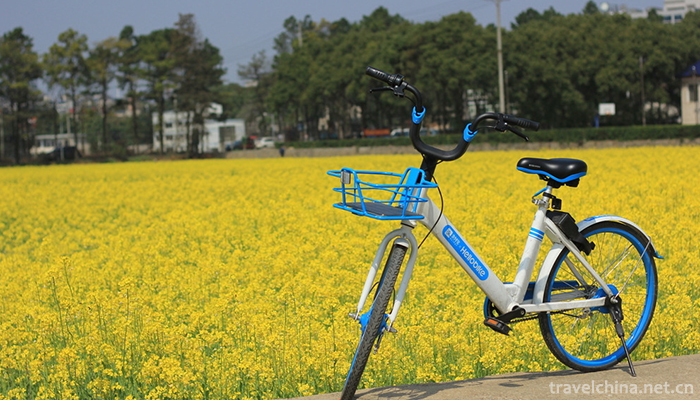
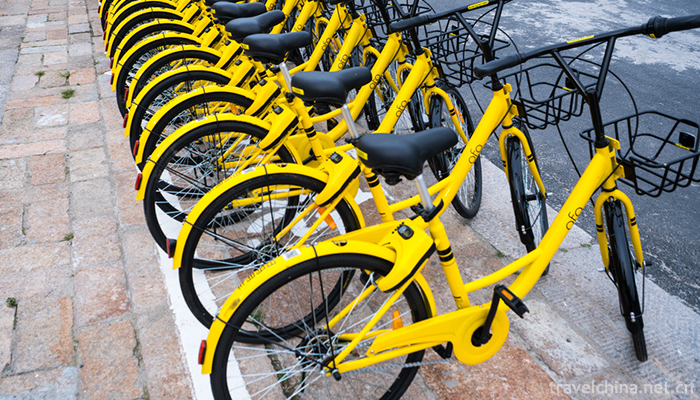
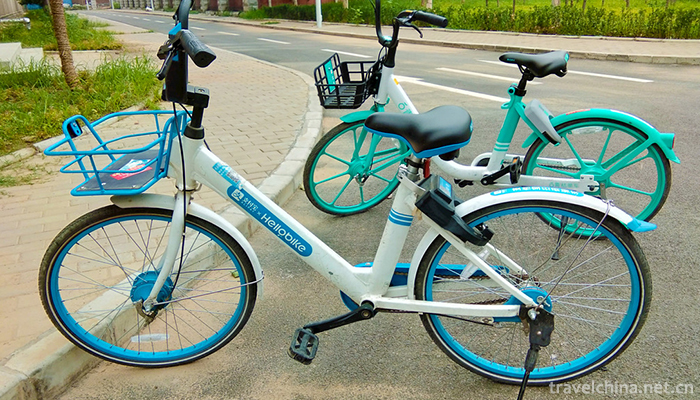

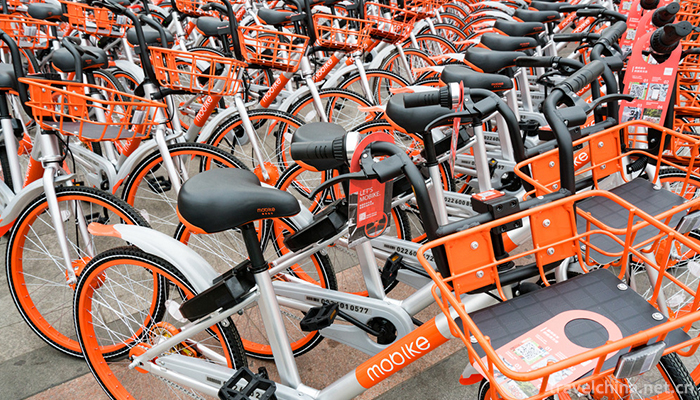
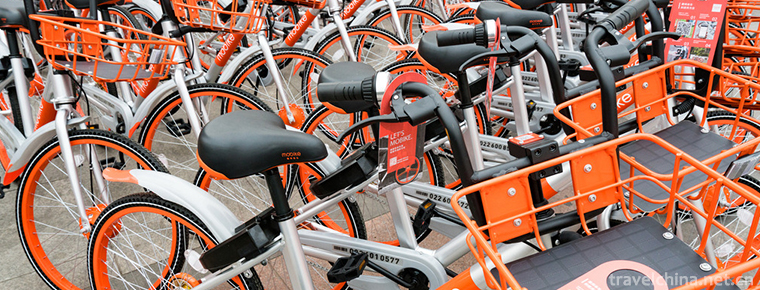
-
1.Liu Jiawan Chaihai Garden
Located on the eastern coast of Taolu Town, Donggang District, Rizhao City, Liujiawan Chaihai Garden is a national AAAA-level tourist attraction, a popular science education base, and a core scenic sp
Time 2018-12-26 -
2.Kaiyuan Cave Tourist Area Zibo
The karst cave in Kaiyuan is named for the cliff stone carvings in Kaiyuan period of Tang Dynasty. It is large and tall with a length of more than 1100 meters. It is divided into six halls. The natura
Time 2019-03-21 -
3.Quail gruel
Ingredients: Quail, 100 grams of Japonica rice, 20 grams of red beans, 3 pieces of ginger, 10 grams of cooking wine, proper amount of salt, monosodium glutamate, pepper and sesame oil.
Time 2019-03-24 -
4.Bow and Arrow Making Skills
Juyuan bow and arrow making technology, the traditional handicraft of Chaoyang District, Beijing, is one of the national intangible cultural heritage.
Time 2019-05-01 -
5.Kazakh felt embroidery and cloth embroidery
Kazakh folk traditional felt embroidery and cloth embroidery handicraft are mainly spread in Xinjiang Kazakh soft residential areas, such as the Sixth Division Red Banner Farm
Time 2019-05-02 -
6.Huai tune Huai Diao
Huai Diao, also known as Huai Diao, also known as Zhanghe Old Diao, is one of the national intangible cultural heritage.
Time 2019-05-04 -
7.April Eighth Girls Day of Miao Nationality
"Girl's Day" originated in memory of Yang Bamei, a heroine. Legend has it that in the Northern Song Dynasty, Yang Wenguang, a famous general, was ordered to be plain and barbarous. After def
Time 2019-06-05 -
8.Sigangli
Lincang City is located in the southwest of Yunnan Province, which is adjacent to the west, southwest of Yunnan and Myanmar. It has jurisdiction over one district, four counties and three autonomous c
Time 2019-06-16 -
9.suzhou pingtan
Suzhou Pingtan is the general name of Suzhou Pingtan and Suzhou Pingtan Ci. It is a traditional form of opera and opera that uses Wu dialect to speak and perform freely. It came into being and became
Time 2019-06-17 -
10.Shicheng mountain
It is located in Shicheng mountain, Hengjiang Town, Xuzhou District, Sichuan Province. The total area is 5500 mu, including 4100 mu of forest. Shicheng mountain inclines from southwest to northeast. It has a good momentum
Time 2020-10-16 -
11.Xiaoxiangling scenic spot
The synonym Xiaoxiangling generally refers to Xiaoxiangling scenic spot
Time 2020-10-16 -
12.Leshan Sports
In 2018, Leshan City organized a team to participate in the 13th Sichuan Provincial Games and won 19 gold medals, 25 silver medals and 47 bronze medals. 63 provincial-level sports fitness projects were established, and 279 municipal level national fitness
Time 2020-12-17